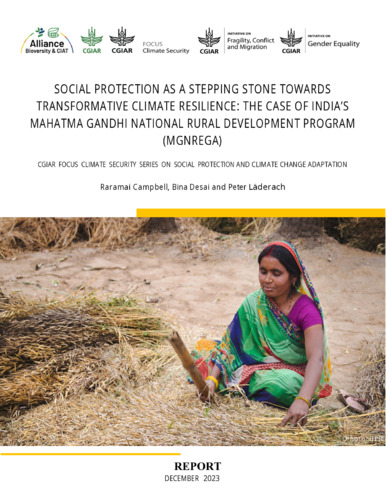Social protection as a stepping stone towards transformative climate resilience: the case of India’s Mahatma Gandhi National Rural Development Program (MGNREGA)
Abstract
Climate related risks are significant threats to rural communities that rely on climate sensitive livelihoods. This study explores the role of India’s public works social protection program, Mahatma Gandhi National Rural Employment Guarantee Act (MGNREGA) and its scheme for climate resilience. It draws on an analysis of policy, climate resilience enhancing projects and interviews to examine how large-scale national schemes can be adapted to address climate vulnerability for rural households. Data showed that there are four MGNREGA program components with potential to strengthen adaptive, absorptive, anticipatory, and transformative resilience capacities: guaranteed wages, private and public infrastructure, institutional strengthening and skill development. The results also revealed barriers to delivery, the importance of bundling benefits across interventions and the benefit of convergence with other risk reduction programs. These findings also highlighted the importance of climate risk information for inclusive long term resilience benefits.

